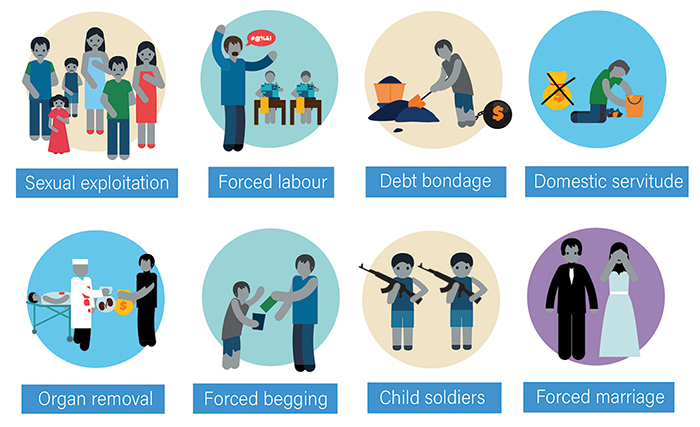News & Events
Understanding what human trafficking is
Speaking at the second event in the KwaZulu-Natal Region’s gender-based violence (GBV) awareness campaign on 23 March, the NPA’s Advocate Dawn Coleman-Malinga, Senior State Advocate in the National Prosecuting Authority’s Sexual Offences and Community Affairs Unit, addressed students and staff on the topic of human trafficking.

Image credit: United Nations Office on Drugs and Crime
Coleman-Malinga is a Unisa alumna and has a Master of Laws. She joined the Department of Justice in 1992 as a Clerk of the Court and, after completing her studies, joined the National Prosecuting Authority in 1997.
In her introduction, Coleman-Malinga discussed the definition of trafficking in persons (commonly referred to as human trafficking) and the background to this GBV-related crime. ‘It is not a new phenomenon,’ she said, ‘nor did it arrive in South Africa with the soccer World Cup in 2010. The slave trade never really died out. It has just been re-defined and modernised.’

Advocate Dawn Coleman-Malinga
Coleman-Malinga said that human trafficking is one of the world’s fastest-growing criminal activities and ranks as the third most profitable business branch of organised crime after drug dealing and the small arms trade. ‘Trafficking often takes place in plain sight,’ she said, ‘but you will not see obvious signs of it. However, if you start asking the right questions and delving into the situation, you may find victims of trafficking. There may seem to be nothing wrong with washing dishes, but if you look deeper, the person washing dishes may be a victim of trafficking in persons. The same applies to a woman standing on the side of the street. She may just be standing there, but she may also be a victim of trafficking in persons.’
Coleman-Malinga explained that trafficking victims are controlled through several different mechanisms. ‘Trafficking can take place as one person performing all the acts,’ she said, ‘or it could involve a number of roles such as those of spotter, recruiter, buyer, seller, transporter, harbourer, financier, brothel keeper and pimp, performed by a syndicate of people.’
* By Jo Cossavella, Communications Officer, Unisa KwaZulu-Natal Region
Publish date: 2022-03-31 00:00:00.0

